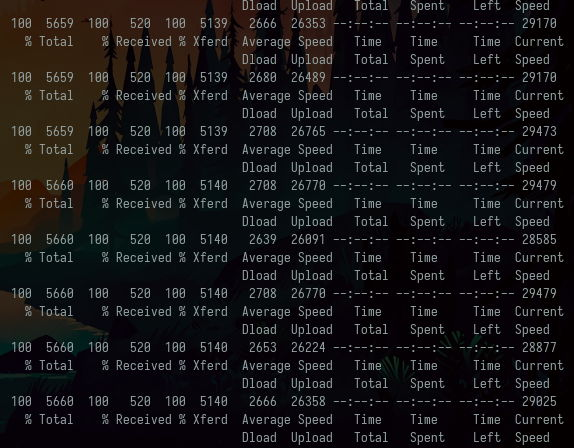Xss attack using script style and image
Learn how to infect a page using an XSS attack with the script, style, or image tags. You can see how to replace the content of the page with your own even without javascript.

Daniel Gustaw
• 4 min read

This article describes examples of XSS attacks. Usage of script tags is probably the most known case, but there also other possibilities. You can change the content of the website on your own using an image tag or pure css.
This is educational material, and you should remember that hacking is illegal if you are caught red-handed. :)
Website code
To present the attack we create a simple website based on PHP. I very like separate logic and view in code, but for simplicity and to minimize the number of lines of code we mixed in, and all website code is placed in index.php. To get the vulnerable website it has to be able to save text from user to database and display it on screen without filtering of this.
Again for the case of simplicity and clarity, we abandon best practices and use a json file instead of databases. The first file of our project is db.json
db.json
["First comment","Second one"]
To save comments send by using PHP script do the following things:
index.php
<?php
$comments = json_decode(file_get_contents('db.json'));
if($_SERVER["REQUEST_METHOD"] === "POST") {
$comments[] = $_POST["comment"];
file_put_contents('db.json', json_encode($comments));
}
- Read content of
db.jsonfile and convert it to PHP array. - Check if the user sends a request by method POST - it means send the form
- If yes
- Append comment send by the user to an array
- Override file
db.jsonby json encoding array with new comment
Independent from the method of request script goes on and display form and list of comments
index.php
echo '<form action="" method="post">
<input type="text" name="comment">
<input type="submit" value="send">
</form>
<ul>';
foreach ($comments as $comment) {
echo "<li>".$comment."</li>";
}
echo '</ul>';
The created website looks like the following

It is fully functional, allows you to add a comment, save it in json, and display a list of comments. If users want to add text, not hack it could be the end of our adventure. But we should assume that at least one user of a website wants to hack it. :)
How to hack it?
This flow of data - saving on the server and displaying on client make possible XSS attack if the text is not properly filtered. XSS means Cross-site scripting and enables attackers to inject client-side scripts into web pages viewed by other users.
Appended executable code is interpreted by browser, not server so we cannot conquer server by it, but can exchange client behavior. Exemplary benefits for attackers are the following:
- stealing cookies (session) - taking control over (logged in) session of the victim
- dynamic change of website content
- enabling key logger in browser
The script can be stored on a server or included in the link. In our case, we want to save the script to json file by typing comments. We are interested in change the content of the website to “Hacked by Daniel”. In any case of presented below attack method website will look like this:

Script
The simplest way is to append a script that dynamically after sile load changes his content to required. Try to add a comment:
<script>document.querySelector('html').innerHTML="Hacked By Daniel"</script>
This code select html - it means all page, and change his content using innerHTML property.
Style
Another method works even if javascript tags are stripped and javascript is disabled in the browser.
<style>html::before {content: "Hacked By Daniel";} body {display: none;}</style>
We defined two rules for the styling of a website. The first one tells the browser to append text Hacked By Daniel before the body of a website. The second one to do not display body.
Image
Of course, if we block script tag and style tag in our comments is not enough, because we can run the script also in other tags.
<img src=undefined onerror='document.querySelector("html").innerHTML="Hacked By Daniel"'>
This is an example of an image that has an invalid address. If the address is invalid browser run script being the value of the attribute onerror.
How to defense?
To defend against this attack we need to filter the comments of our users and strip HTML tags. We can do it by changing the code in index.php as below
- $comments[] = $_POST["comment"];
+ $comments[] = htmlspecialchars($_POST["comment"]);
After applying this fixed text written in the form will be displayed in comments lists literally equal text typed by the user, and will be not interpreted as Html tag.

Summary
We showed simple examples of XSS attacks. If you use a framework like Symfony then framework have security mechanism build in his structure, but you should remember about htmlspecialchars function if you write in pure PHP.
Other articles
You can find interesting also.

Git styled calendar with custom dates
git styled calendar created from list of dates saved as csv file

Daniel Gustaw
• 2 min read

Tesseract-OCR and testing selects.
We will read the content of the database table from the photo and write a few tests for database queries in Behat.

Daniel Gustaw
• 25 min read

Scraping of the Pharmacy Register
Data administrators hate it. See how by entering two commands in the console he downloaded the register of all pharmacies in Poland.

Daniel Gustaw
• 7 min read